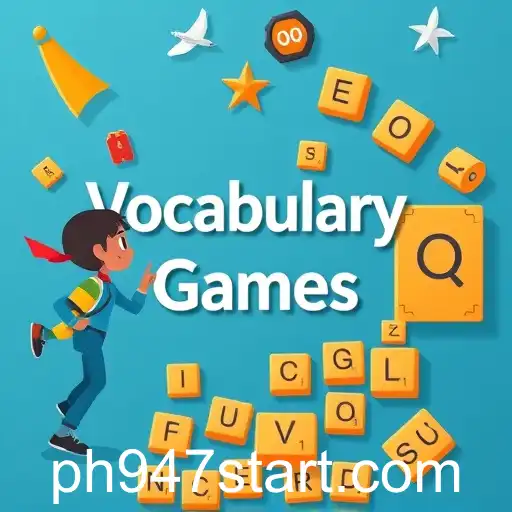Vocabulary Games: Enhancing Language Skills Through Fun and Interactive Play
In the digital age, where technology increasingly integrates with learning, vocabulary games have become a particularly effective tool for enhancing language skills. These games, often categorized on educational websites under keywords like "ph947," offer users an engaging and interactive way to improve their vocabulary while having fun.
Vocabulary games come in various forms, ranging from traditional word search puzzles to sophisticated mobile apps that challenge users with spelling bees, anagrams, and word associations. These games are designed to cater to a broad audience, from children learning the basics of language to adults looking to refine and expand their existing lexicon.
One of the key benefits of vocabulary games is their ability to adapt to the user’s skill level. As users progress, games can introduce more challenging words and concepts, providing a tailored learning experience that can keep players engaged for extended periods. This adaptive learning not only helps in the retention of new words but also fosters critical thinking and problem-solving skills, as users must often decipher context clues and synonyms.
Moreover, vocabulary games often include competitive elements, such as leaderboards and timed challenges, which can motivate users to improve their performance. These features tap into the natural human desire for achievement and recognition, encouraging players to practice more frequently and diligently.
In educational settings, vocabulary games have proven to be a valuable resource for teachers looking to supplement traditional teaching methods. By incorporating games into their curriculum, educators can introduce a level of gamification that makes learning more relatable and enjoyable for students. This is particularly effective for younger learners, who may find conventional study methods monotonous or intimidating.
The success of vocabulary games lies in their ability to merge education and entertainment seamlessly. As more people turn to online platforms for learning, the demand for innovative educational tools like these continues to grow. Vocabulary games not only enrich language acquisition but also promote lifelong learning habits, making them a powerful tool in both academic and personal development.
In conclusion, vocabulary games offer a unique and dynamic approach to language learning. By making the process enjoyable and interactive, these games help users of all ages enhance their vocabulary, foster creativity, and develop cognitive abilities. Whether used in classrooms, at home, or on-the-go, vocabulary games embody the future of education innovation.

Exploring the world of vocabulary games, which effectively merge education and entertainment to improve language skills. These games are interactive, adaptive, and cater to users of all ages, making them a valuable tool for both personal and educational development.




